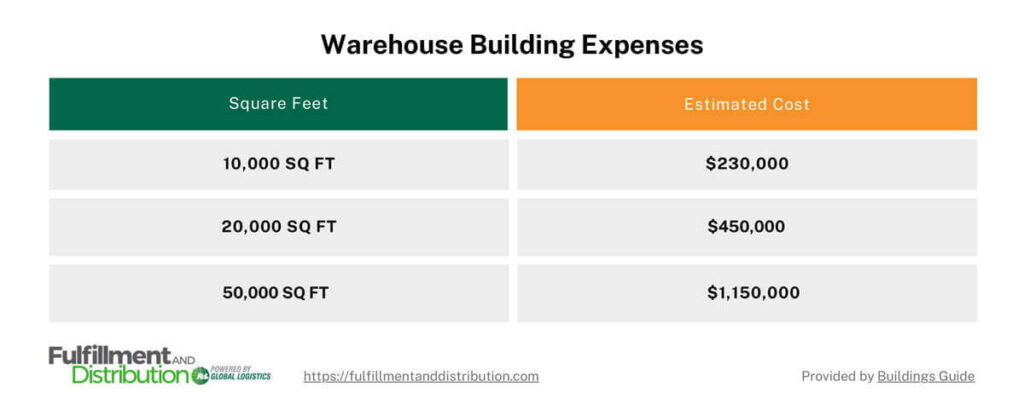
 Copy URL to Clipboard
Copy URL to Clipboard
Running your own warehouse can be stressful, expensive, and time-consuming. Contract warehousing is a great solution that can help you get around these challenges. Numerous companies use these facilities to make storing and distributing their products easier.
I’ll show you how contract warehouses work to help you decide if it's right for your business.
Contract warehousing is when businesses hire a third-party logistics (3PL) provider to receive, store, and ship their cargo. The contract that both parties agree upon dictates the terms of service and how long the arrangement will last.
This agreement allows businesses to effectively outsource their warehousing operations. In the following sections, I’ll discuss the benefits of contract warehousing and the different types you can utilize.
Contract warehouses are popular because of the various benefits they have to offer.
When a company contracts with a warehouse, they don’t need to invest large amounts of money to build or rent their own facility. Therefore, they can save themselves a considerable amount of capital and time. To put into perspective how much it costs to build a warehouse, consider the following data.

In addition to eliminating startup costs, there are various expenses you won’t have to pay when using a contract warehouse.
With so many costs out of the picture, your operational expenses will be significantly cut. These facilities can also provide a wide-range of services besides receiving, storing, and shipping.
This includes:
Contract warehouses are known for their reliability. For one, they’re run by 3PL professionals that have years of experience in the logistics industry. Their expertise gives them the ability to perform their services efficiently and effectively.
3PLs usually set up their contract warehouses across the country, which means you’ll have access to their services wherever your business endeavors take you.
Related: How Much Warehouse Space Do I Need?
Most contract warehouses handle general merchandise. That said, there are facilities specializing in sensitive items, like perishable goods and hazardous materials (HAZMAT).
Contract warehouses that hold perishable items have refrigeration systems that keep products at the appropriate temperature. Facilities handling HAZMAT freight have the essential equipment to protect the integrity of the items. Workers in HAZMAT warehouses also receive extensive safety training.
Regardless of what products your company sells, there’s a strong chance you’ll be able to find a facility that can store and distribute them for you.
There are two alternatives to contract warehousing commonly used in the logistics industry.
Public warehouses are also run by 3PLs, but they’re typically used on a short-term basis. Costs are determined based on how much space is used and for how long. They also serve multiple clients at a time. It’s a great option for businesses that have fluctuating warehouse needs.
Private warehouses are owned and operated by large companies. They allow owners to maintain complete control over their storage and distribution. While they’re great for larger businesses, private warehouses are expensive to run and maintain.
Contract warehouses are superior to private ones because they still give businesses a considerable amount of control over their logistics operations without making them actually run it. Unlike public warehouses, contract facilities tend to focus on long-term storage and fulfillment operations.
Related: Retail Shipping Warehouse
The pricing structure of a contract warehouse is extremely important to understand. There are two common methods they tend to use.
I’ll explain each pricing method to give you a better understanding on how they work.
A fixed price contract establishes the cost of services you’ll pay for a set amount of space in a warehouse. The amount you’re charged won’t change for the duration of the contract, regardless of your order volume or frequency.
Fixed price contracting is beneficial because it ensures your expenses will be predictable. This will make it easier for you to plan your budget, while reducing risk.
However, predictable doesn’t mean cheap, so this pricing method can be expensive. To get your money’s worth, you should only use it if you have a moderate or high volume of bulk freight to store and distribute.
Variable pricing will adjust your costs based on the volume of goods you store and the services you utilize. As a result, your expenses will fluctuate for the entirety of the contract.
Using the variable pricing method is a great option when you’re experiencing seasonal fluctuations in demand. It can also be useful if you have a limited supply of goods to sell.
A contract warehouse is useful in a variety of circumstances.
If you’re the owner of a new or small business, you probably don’t have the capital to build out your own warehouse. Contract warehouses remove that need for investment by providing a cheaper solution.
Using this facility will also give you the opportunity to focus on other areas of your business. 3PLs have decades of experience in the logistics industry, which means you can rely on them to store and distribute your goods efficiently.
Finally, contract warehouses are a great long-term solution. Many 3PLs are happy to offer their services to customers for an extended period. Therefore, you’ll be able to negotiate a contract that will last as long as you require.
Fulfillment and Distribution can be your premiere warehousing provider. With leadership that has 80 years of combined experience in the logistics industry and trained warehouse staff, we guarantee you’ll receive the quality services you require. Our warehouses can be found across the U.S., which will give you access to a larger customer base.
Some of our warehouse locations include:
Use our facilities today by filling out your Fulfillment and distribution quote. You can also contact our team at (866) 989-3082 if you have more questions about our services.
